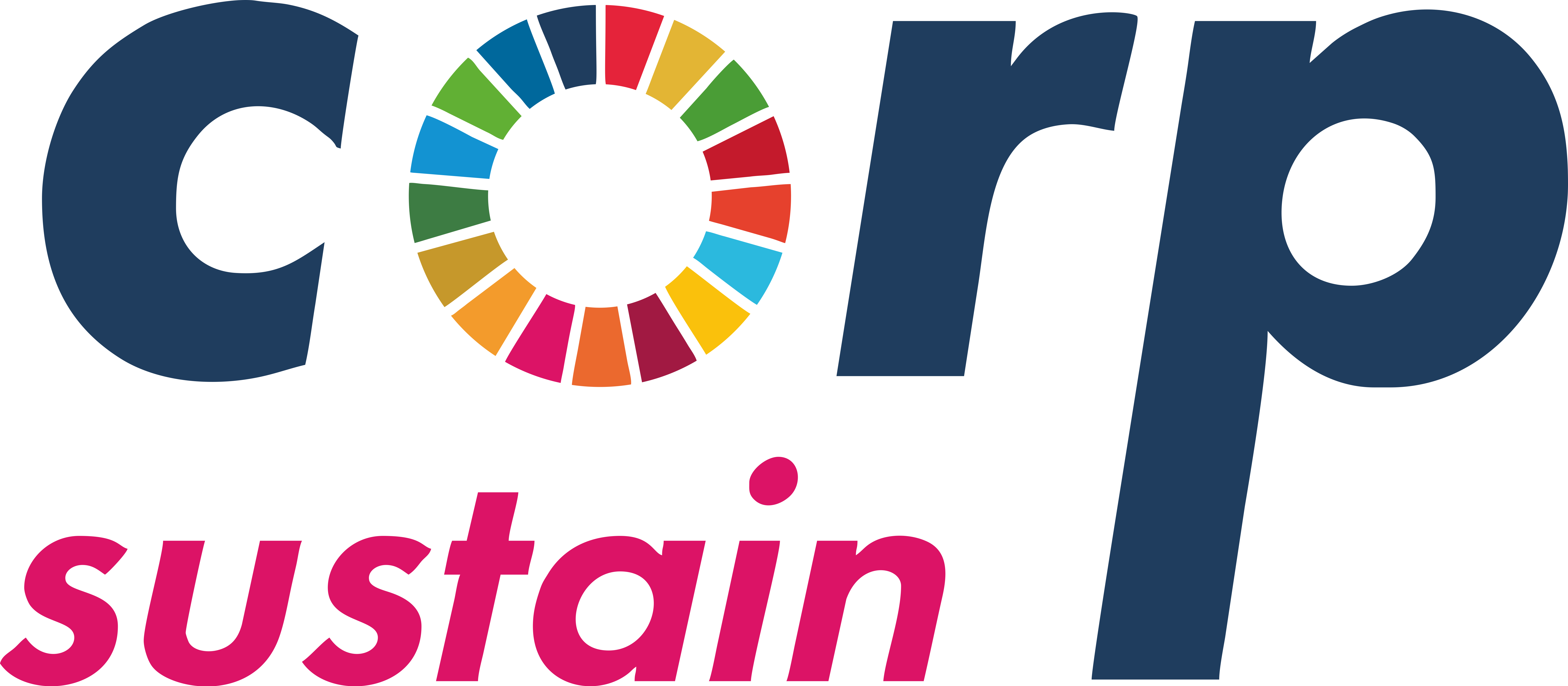What is Economic Sustainability?
Finances are changing alongside the crisis of climate change, as investors are starting to seek investment opportunities with companies that seek sustainability and are dedicated towards helping the environment and fighting against climate change.
Why is it important that people and companies alike recognize the benefits of economic sustainability?
In this blog, we’ll explain what economic stability is, why it’s important, benefits and examples of economic stability, and how your company can get started.
What is the meaning of Economic Sustainability?
Economic sustainability refers to practices that support long-term economic growth without negatively impacting social, environmental, and cultural aspects of the community.
The main goal of economic sustainability is to create a balance between economic growth and the development of positive change for the environment and humanity.
As a result, economic sustainability work towards the concept to provide all people with the resources necessary to live a satisfying life – such as helping to provide affordable housing, sufficient salaries, good working conditions such as providing paid time off (PTO) and childcare, and regular access to public transportation.
Why is Economic Sustainability Important?
Economic sustainability is important for business because it cannot achieve long term growth if it exhausts natural or human resources. Business today can no longer harm the environment or their communities to deliver ongoing economic growth, because to continue to do so creates conditions that destabilize the context in which the business operates. Businesses are increasingly embracing the health of the environment and people as part of their money- making strategies. In addition to the benefit of the long- term future of the planet, economic sustainability delivers many advantages to business. For example, it helps them assess their operations to monitor things like energy waste, which leads to savings. And by enacting better social practices, companies avoid turnover and have a more productive staff. Being an economically sustainable business can help win contracts from clients and governments and can increase customer loyalty.
“This is why economic sustainability isn’t just important from an environmental point of view, but from a business point of view. Companies can benefit from economic stability as it would not only improve the surrounding conditions for their consumers- but for their employees too.”
Economic sustainability will encourage the use of renewable energy sources and ultimately create more lucrative opportunities for the business in question that allow for customer loyalty and financial longevity. Also, customers and investors are becoming more interested in shopping or investing in companies that make their dedication to environmental improvement well- known – and companies that demonstrate their ability to adhere to economic sustainability will reveal to potential customers and investors that they are a sustainable option to partake in.
Basically, economic sustainability is imperative for any business seeking to build long- term customer loyalty and financial success- an ignoring sustainable measure will eventually lead to an obsolete business model, since the current resources used for sales and production will no longer be viable as climate change continues to worsen.
What are the benefits of Economic Sustainability?
There is a multitude of benefits for those who subscribe to the notion of economic sustainability, especially seeing as economic sustainability, especially seeing as economic stability is good for the planet, people and businesses- such as by working to encourage economic growth and improve the quality of life for your employees.
First of all, economic sustainability is imperative given the current, continued deterioration of the planet- as the continued use of finite resources such as oil, gas, and fossil fuels will only create more greenhouse gas emissions that will further pollute the atmosphere and raise global surface temperatures. Economic sustainability disregards the use of finite resources or non- biodegradable materials that will contribute to landfill and excessive emissions. If all businesses made a commitment to economic sustainability, the planet would be able to breathe a sigh of relief.
However economic sustainability is equally beneficial from a business perspective. Economic sustainability allows businesses to decipher where they can improve their sustainability measures and reduce their carbon footprint to adhere to new environmental regulations as well as attract new customers and investors. These new sustainable measures can also ultimately help to reduce business costs- as electricity and other various utility bills will be lowered once more sustainable measures are implemented. Similar to climate smart farming, implementing economic sustainability can allow for a business to afford new technologies that will help them reduce even more emissions- creating even more positive environmental change, consumer curiosity and investor interest to help grow the business even more.
Businesses that incorporate economic sustainability can also help to influence their surrounding communities. While it is vital that businesses recognize the importance of their commitments to sustainability and reducing emissions, as much of the world’s excessive emissions are caused by commercialized purposes, it is equally important that people thrive to make a difference for the planet in their everyday lives, too.
Economic sustainability can also prove to be beneficial for everyone’s daily lives. In short, economic sustainability is beneficial as it serves as a domino effect to increase sustainability worldwide- by boosting business activity and greener practices.
What are some examples of economic sustainability?
Economic sustainability isn’t just prevalent in simple things like recycling your old clothes or bringing a reusable mug to the coffee shop – but in many large organizations dedicated to sustainability and improving the current environmental circumstances.
Economic sustainability influences several major sustainability programs, such the United Nations Sustainable Development Goals and Agenda 2030. These 17 Sustainable Development Goals, or SDGs provide any company or organization interested in implementing sustainability with ideas for various ways to incorporate sustainability into their business models- such as ending poverty, mitigating world hunger, improving global education, promoting gender equality, making use of clean energy, and caring for wildlife which is essential to maintain our biodiversity. Things like Agenda 2030 by the UNGC help perpetuate the importance of sustainable development by advocating for fair labor laws, gender equality, mitigating waste, and protecting the planet.
Clearly, lots of companies regardless of their sector have found ways to implement economic sustainability. Is there a way that your company can, too?
How can you get started with economic sustainability?
Economic sustainability isn’t unattainable. In fact, it’s a great first step in the process of transitioning your organizations to become a green company. Here are a few things you can do to start implementing economic sustainability into your business.
Make use of Clean Energy
One of the easiest ways to start working towards economic sustainability is to transition to the use of clean energy. There are a wide variety of benefits to using clean energy, including reduced carbon emissions and business costs- and ultimately attracting new customers and investors. This can be done by offering products that make use of infinite energy resources such as geothermal power, wind power, solar power or hydropower.
A great example of this are iPhone chargers that use solar power to charge the smartphone’s battery.
Show Customer’s Their Sustainability Efforts are Important.
Customers love to feel involved in a company’s mission, as it makes them feel important and bonds the customer to the company- establishing greater customer loyalty. For instance, customers will love companies that offer customers to bring back their original containers and fill them with new products. This not only incentivizes the customer to return to the company offering the refill but raises awareness for consumers to get better at reusing their old containers or reusing them.
People like to feel important and as if their actions make a difference, even if they do not verbalize it. Therefore, making sure your customers feel a part of your journey to sustainability is imperative in creating a business with effective economic sustainability.
Renovate The Office
Minimalist, sleek, and simple designs aren’t just the go- to style in the magazines- but for the planet as well. Referring to methods like modular construction, which can help reduce waste and the number of emissions produced during construction, can also help your company to reduce their carbon footprint in the midst of renovation.
Opting for solar panels, car- sharing opportunities or monthly public transportation passes for employees, recycling and compost bins, energy efficient light bulbs, or smart windows that can mitigate excessive sunlight or frigid temperatures from entering the building – can all make a difference in the carbon footprint of your employees and the office itself.
Economic sustainability starts with investing your time, money and energy into practices and technologies that may seem extreme at first- but will ultimately yield a more lucrative business that has the potential to maintain its longevity and take part in the fight against climate change.

